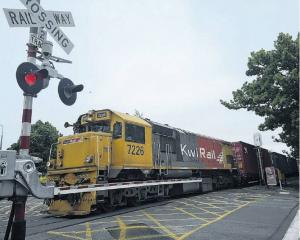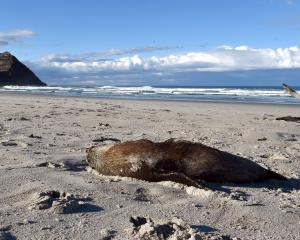Dunedin Airport has joined a string of the city's big energy users in a scheme to lower energy costs through collaboration and co-operation.
The Energy Leaders' Accord brings several of the city's major energy users together to share ideas, experiences and to combine resources and buying power to reduce energy costs.
It is part of Dunedin City Council's energy plan 1.0, a project designed to claw back energy use in the city.
It was hoped the accord would bring a major change to the way Dunedin businesses tackled energy costs, by working together, rather than everyone working on their own, the council's corporate policy manager Maria Ioannou said.
Under the accord, successful energy-saving outcomes developed, tested and perfected by any of the organisations involved could be shared with all businesses in the city, saving small businesses the time and money needed to ''constantly reinvent the wheel''.
''All Dunedin businesses will be welcome to tap into and make use of any cool things that come from this. It's not a closed network.''
The resultant savings could then be spent in Dunedin, pumping more money into the city's economy, rather than on imported energy sources such as gas, petrol and diesel, Ms Ioannou said.
''Our primary reason for doing the energy plan is to increase the number of jobs, and increase the amount of disposable income people have.
''The writing's on the wall in terms of how much energy costs a business. And it is a controllable cost. It's one of the few controllable costs.''
Dunedin Airport chief executive Richard Roberts said the thinking behind the accord was worth supporting.
''We're happy to do anything we can do to assist this accord to be successful, and to concentrate people's attention.''
The city would ''always be better together'' when tackling such projects, he said.
The airport had joined Delta, Aurora, Port Otago and Otago Museum in the accord, whose foundation members included the Dunedin City Council, University of Otago and Otago Chamber of Commerce.
Joining the accord did not mean those member organisations were suddenly going to be provided with new ideas council staff had dreamed up, Ms Ioannou said.
''We're not taking solutions. We're taking challenges, and relying on the cleverness of our city partners to come up with solutions.''
Dunedin was in the lucky position of having a tertiary sector offering ''the whole spectrum of energy research'', she said.
The key was working as a city to put that research, as well as other energy efficiency schemes, to work.
''What we were really wanting to do was find a way to harness that thinking, and find ways to make it work locally. We wanted to make sure there was an environment established that turned energy work from just talk to real action.''
Through writing the plan council staff had encountered several examples of businesses thinking about and experimenting with energy efficiency, Ms Ioannou said.
''But there wasn't a level of talk about it. And this establishes a sort of framework for having those conversations.''












